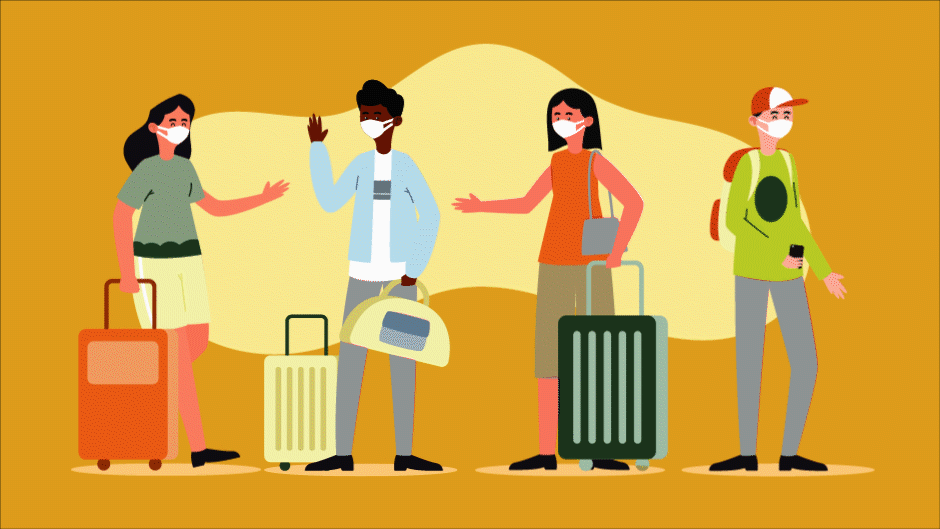As the fall semester approaches the end of in-person instruction on Nov. 20, students are finalizing their winter break plans and thinking about how to celebrate the holidays. To help slow the spread of COVID-19, Rachel Askowitz, health educator with Student Health Service, provides tips and preventive measures to be safe, healthy travelers during winter break and some things to keep in mind this holiday season.
“Having a plan is essential to make sure you’re not bringing the virus home to your loved ones,” Askowitz said. “And it may be tempting to see all your family, but we have to stay vigilant. Our holiday celebrations might look different, but it doesn’t mean we can’t still celebrate safely.”
Continue to strictly follow the University’s public health guidelines to help slow the spread. The contraction of the coronavirus prior to your departure may delay your travel plans:
- Wear a face-covering whenever you are in public.
- Maintain physical distance.
- Practice good hand hygiene.
- Avoid large gatherings.
- Get your flu shot by Nov. 16.
Be prepared for your travels. A negative test result only reflects one point in time and, in some cases, the virus may be contracted during travel. A negative test is not a license to end these preventative measures:
- Make a detailed plan for traveling to and arriving at your destination.
- Check and abide by all local and federal guidelines regarding travel to your destination.
- Wear a face covering over your nose and mouth through the duration of your travel.
- Pack sufficient hand sanitizer, face coverings, and food or water in the event dining options on your route are closed.
- Follow physical distancing measures. While you may not feel any symptoms, you may be carrying the virus.
- The most cautious approach upon arrival home is to quarantine for the first 14 days after arrival. This is especially important for those returning to vulnerable, higher-risk individuals and/or there is a high prevalence on campus or in the local community surrounding campus prior to leaving for home.
If flying, the CDC recommends:
- Washing your hands frequently, especially after security check-in
- Requesting seats with empty spaces between yourself and other passengers, if possible
If driving, the CDC recommends:
- Sanitizing surfaces like gas pumps before use
- Planning to stop as infrequently as possible to avoid exposure on the road
As the holiday season approaches, it can be tempting to spend time at home with your family and friends. Here are a few ways to celebrate with loved ones safely:
- Avoid close contact with anyone who may be considered high-risk.
- Avoid buffet-style dining during holiday celebrations.
- Limit the number of attendees and follow any local limits on the number of people allowed at a gathering.
- Plan to host gatherings outdoors and in small groups where physical distancing can be maintained.
- When gathering, remember to wear a face-covering at all times.
- Review CDC guidelines for celebrating the holidays safely.
Looking ahead to your return to campus:
- Guidelines for testing and other requirements for a safe return to the spring semester will be shared soon.
- Avoid unnecessary travel, which poses an increased risk to your health at this time.
- In the meantime, be sure to continue following the University’s guidelines to help slow the spread to have a safe winter break.
- For more information on the University’s COVID response, visit coronavirus.miami.edu.
As a community, we are reminded now more than ever that ’Canes Care for ’Canes, and beyond. “These might be actionable tips to keep yourself safe, but it really is about our community as a whole,” Askowitz said. “It’s not just about one of us, it’s about all of us and making sure we keep our loved ones safe and can return in the spring.”

